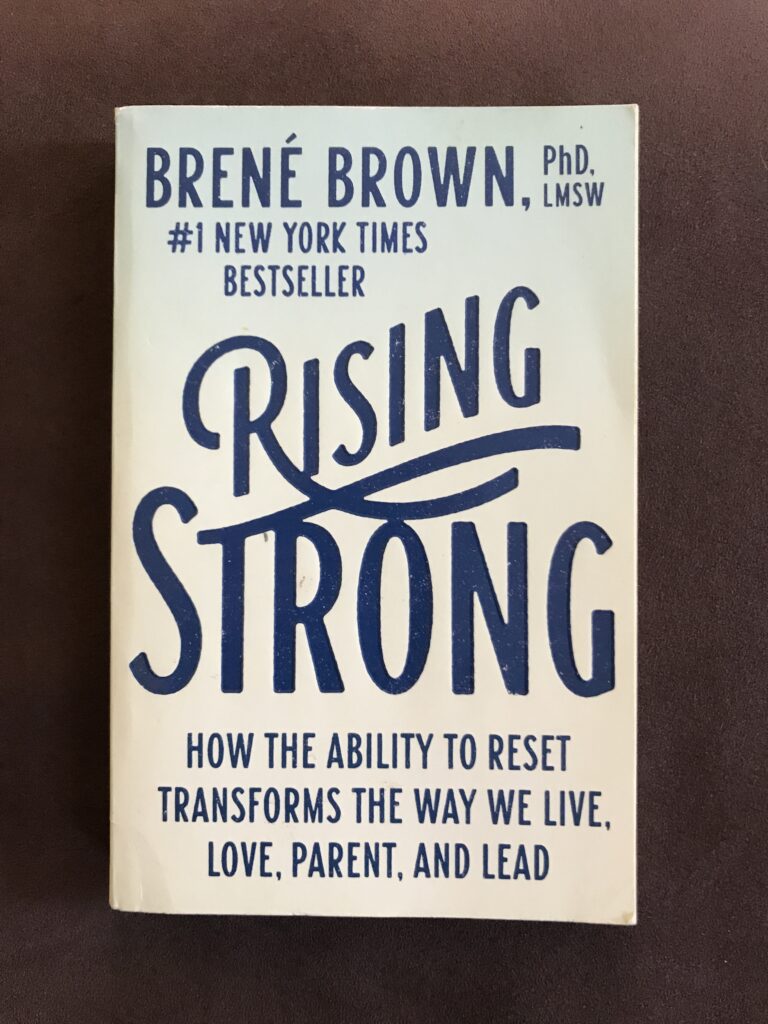Header image courtesy of All-Go: an App for Plus-Size People on Unsplash
The current pandemic situation means a lot of us are staying at home a lot more than we’re used to. Whether it’s suddenly adapting to a home office, tackling homeschooling for the first time, or even trying to figure out what in the world in our house we can use to add weight to our squats, there’s no denying self-isolation is shaping us in big ways.
One of those ways involves the people with whom we may be sheltering in place. Some of us are figuring out that sharing our homes and lives on a daily, hourly, minute-by-minute basis with our partners or roommates is getting… interesting.
So if you need a refresher on how to have a healthful argument, read on. If you’re already a Difficult Conversation Professional™, feel free to skip down to the “Next Level” sections and deepen your skills.
Note: These tips are (hopefully!) useful for any argument, not just with romantic partners. Use them with roommates, friends, or family too. For simplicity, I use “partners” throughout the article as a blanket term.

Tip You Know: Use “I” Statements
An oldie but a goodie, hopefully you know by now to use “I” statements. This means, in case you need reminding, that instead of saying something like, “You’re totally missing my point!” instead try, “I feel like you’re missing my point” or “I think you’re missing my point.”
This immediately lowers the antagonistic energy of an accusation into an offering of your perception and experience of the argument. It gives your partner the opportunity to course-correct, ideally with a curious clarification question like, “Okay, can you please repeat what you said?” or “I’m sorry, can you please explain more on your previous point?”
Next Level: Gently Interrupt the Argument to Talk About the Argument

This gets a little meta, but I can’t underscore the importance of this enough. I got this tip from Brené Brown, and if you don’t know who she is, go order all of her books right now. (Seriously. That’s not even an affiliate link, I just love her work. That’s my copy of her book to the right.)
I put this to use in a fight with my partner a few weeks back. I can’t even remember the original argument, because I was so proud of the fact that we pivoted to address how we were arguing.
I’d been trying to make my point, and we’d been arguing for a bit about it already so it was a little heated, and he’d interrupted me at least a few times with rebuttals. Instead of saying, “You’re so rude, you’re constantly interrupting me!” (which trust me, I was tempted to do) I said, “Babe, can we stop for a second? I feel like you’re interrupting me a fair amount, and it makes me feel like you’re not listening.”
Yes, those are “I” statements again. But by asking to halt the initial argument for a moment, it opened the door for us to discuss our “fighting etiquette,” as it were. He explained the reason he was interrupting, I explained why it bothered me, and he made an effort to let me finish my thoughts before starting his own.
After that, we returned to the original argument. We both obeyed the etiquette, we each felt heard and respected, and the very fact that I can’t even remember what the initial topic of strife was tells me that it wasn’t as important as how we fought about it.
So if you need to pause a fight to set some ground rules, or your partner asks to, do so.
Tip You Know: Avoid Absolutes

Never use absolutes (see what I did there?). Seriously though, absolutes are the enemy of any constructive argument.
“You’re never around!” “You’re always nagging me!” “You never help with the dishes!” “You’re always on your phone!”
How does reading those accusations make you feel? Now imagine your partner throwing them in your face, or vice versa.
First of all, they’re not true. There’s no way someone is literally never around (especially now. Thanks, coronavirus) or literally always on their phone. Saying so is patently false and immediately brings the other person’s defenses wayyyyy up.
Remember those “I” statements? They work here too. Instead of making accusations, say, “It seems to me you spend a lot of time on your phone.”
Next Level: Make Requests
Taking “I” statements to yet another level, follow up the phone comment with a simple request. “It seems to me you spend a lot of time on your phone. It would make me feel really special if we could have dinner be a phone-free zone.”
If you feel your partner/roommate usually treats you well and loves/respects you but there’s still something missing, literally just ask for it. They may not even realize their habit is bothering you. Or, if they do, perhaps you were unclear in your expression of it before, so try different wording.
Starting from that place of respect and expressing your needs means hopefully they hear you and adjust their behavior. (If not, it’s time for a different type of discussion that’s too long for this post, but I’ll get to it in another one!)
Tip You Know: Give Your Partner the Benefit of the Doubt

Approach each argument with goodwill. Don’t assume the offending party is being an a***hole on purpose just to bother you or make your life hell. If you bring your issue to them assuming they’re unintentionally crossing a line, the rest of the argument goes more smoothly.
Disclaimer, if the offending party is, in fact, being an a**hole on purpose, that’s a whole other type of conversation that, again, I’ll post about at a later date.
Next Level: Dig Deep into Your Baggage Before the Fight (if Possible)
Say your partner does something that really gets under your skin, whether it’s minor or major. We’re talking seeing red, knots of anxiety in your stomach, deep-breaths-won’t-cut-it-this-time levels of mad. Before flying off the handle, try and analyze the situation with your past in mind.
Did a previous partner have a similar habit that may be triggering you? Or a parent, or an old friend? Have you ever told your partner about this trigger? If yes, gently remind them.
If not, it’s not your partner’s fault they hit a sore spot, and instead of blaming them, approach the argument with that same goodwill, and share the story of your past experiences (if you’re comfortable!).

Explain why it’s so upsetting and acknowledge that while you know your partner isn’t your past, it would still be helpful if they could avoid doing whatever triggered you while you work on dismantling the trigger itself. (Therapy is great for this, if you can afford/access it. Here’s some resources for virtual therapy and resources for when you can’t afford therapy.)
Second disclaimer: if you have anyone in your life who is ignoring your boundaries or being outright abusive, do not put up with it. Coronavirus has made a lot of domestic violence and abuse situations worse, but if you can, please get away from the abuser. Here is a website for help.
Tip You Know: Don’t Go to Bed Angry
This one means you should always hash out your fights in the moment, right away, so they don’t fester. Yes, not letting issues get worse as you ruminate and dwell and brood is great, but refusing to let an argument go…
Next Level: No Next Level, This One’s Just Bad Advice
… can really backfire. People have different communication styles, and yes, hash it out RIGHT NOW is one of them. But sometimes, people need space to either gather their thoughts, calm their emotions, or avoid saying something they don’t mean and will regret later.
If you and your partner are fine handling things in the moment, great, don’t go to bed angry. However, don’t be afraid to ask for space if you need it. If your anger or anxiety are through the roof, take some time to calm down before engaging in the argument.

Something as simple as, “Hey, I know we need to address this/there’s something bothering me, but I’m feeling very emotional about it right now and I need time to organize my thoughts. Can we talk about it <insert future time here>?” This lets your partner know you’re not dismissing them or the fight, you’re not pretending everything is fine when it isn’t, and that you intend to come back to it, you just need time.
The key here is to then go and organize your thoughts.
No brooding. No festering. No wallowing. Feel your feelings, of course, but work with them. Journal, scream into a pillow, go for a walk (safely!), blast music sitting in your car in the driveway, whatever you need to do to calm down, go do it. Then come back to the fight once you’re centered and hopefully able to follow the rest of these tips.
Tip You Know: Remember it’s You and Your Partner Against the Problem, Not You vs. Your Partner
Next Level: None, This One’s Solid
Broaden this to include all people with whom you may have fights. If you love them and the relationship in general is healthful and you want it to continue, try to remember it’s not you vs. them. It’s you both on the same team against the problem.
This simple mindset shift can go a long way toward reframing the entire rest of your argument, and make it easier to keep the above tips in mind.
If you start to feel resentment and anger toward your partner, take a deep breath and remind yourself that you’re in this with them. It’s a problem the two of you will solve, together.
What Else Have You Found Useful?
If there are tips I missed or next-level ways to enhance them, I’d love to hear from you in the comments!
And, as always, if you enjoy my writing and know someone who could use me in their business, please don’t hesitate to contact me. I’d be delighted to write for you!
